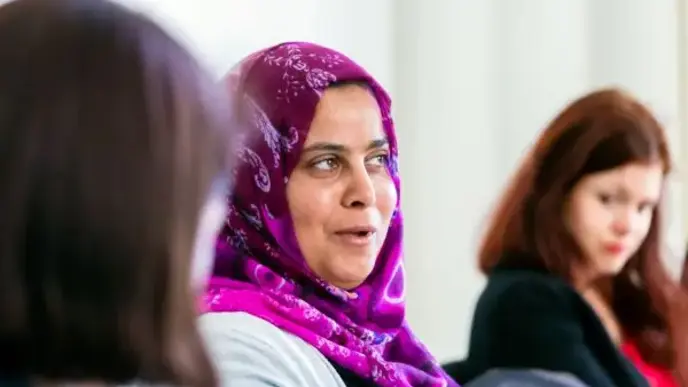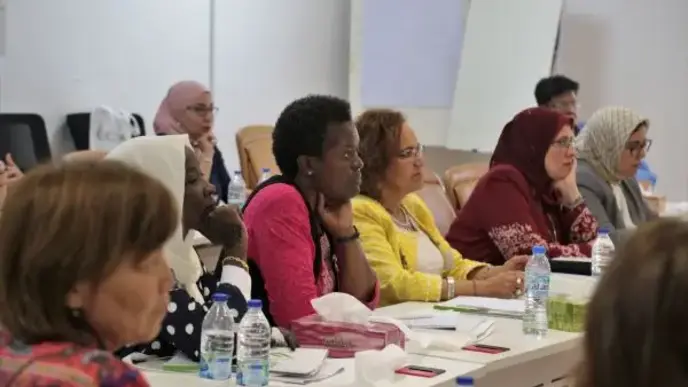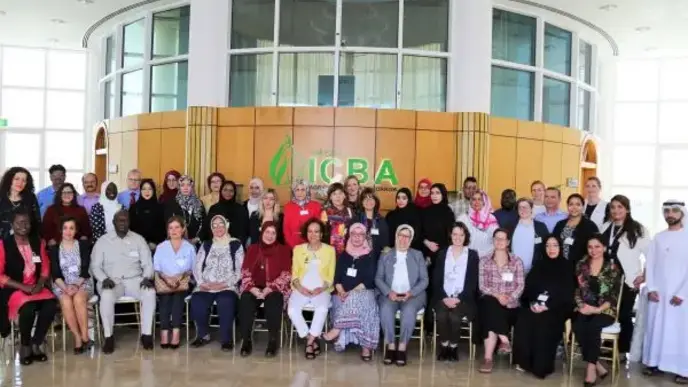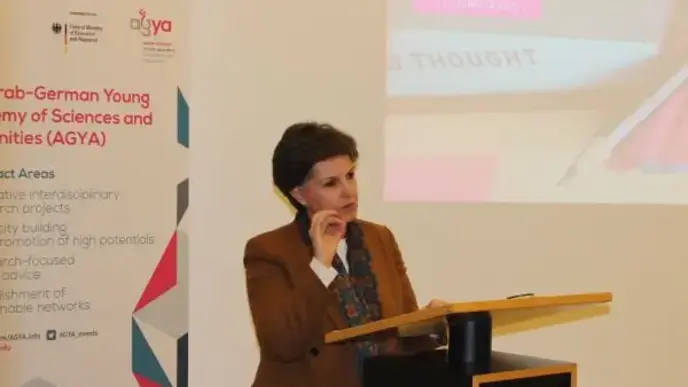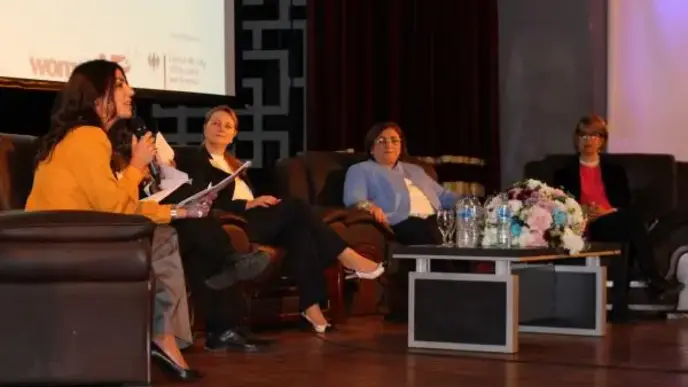Empowering Women in AGYA, Academia and Society
Empowering Women in AGYA, Academia and Society
The full participation and partnership of both women and men are needed to tackle today’s most pressing global challenges. Yet, women continue to face numerous gender-specific hurdles in education, the workplace and society more broadly. As part of its mission to connect outstanding early-career researchers from the Arab world and Germany for interdisciplinary knowledge exchange and research cooperation, the Arab-German Young Academy of Sciences and Humanities (AGYA) places a special emphasis on women’s empowerment, gender equality and promoting female researchers. AGYA actively encourages women’s leadership within the Academy’s structures, and carries out research projects that focus on women’s role in research, knowledge production, education policy and outreach.
Empowering Women from Within: AGYA’s Structures Cultivate Female Leadership
AGYA members are the driving force behind the Academy’s activities, structure and research agenda. Members have full freedom to set the Academy’s priorities and turn their ideas into action. Since its founding, women’s empowerment has been a consistent priority for AGYA’s members. In addition to promoting gender-responsive content in AGYA projects, tailor-made capacity building opportunities organized by and for AGYA members frequently integrate gender-based considerations and empowerment approaches. Women also contribute to and benefit from important leadership roles within AGYA, at the level of their own projects and as members of the AGYA Steering Committee and Co-Presidency, who represent AGYA at international conferences and actively engage in exchange with leading academic institutions and policy-makers. Women who have served in these roles have reported considerable benefits from the experience. AGYA member Zeina Hobaika (Lebanon), looking back to her time as AGYA Co-President, she gained ‘new knowledge, advanced leadership skills and greater confidence, both professionally and personally.’
AGYA Lecture Series on Contemporary Women Philosophers in Arab Countries Shines a Spotlight on Women in Science
An emphasis on women’s empowerment is also evident in the content focus of numerous AGYA projects. The recent AGYA lecture series on ‘Contemporary Woman Philosophers in Arab Countries: Intellectual Portraits’, is a prime example. In response to the dearth of attention in Europe regarding Arabic-language philosophy, which often focuses only on pre-13th century men like al-Fārābī (872-950), Ibn Sīnā (980-1037) and Ibn Rušd (1126-1198), AGYA members designed a project to communicate the contemporary contributions, thematic complexity and interdisciplinary relevance of more recent Arabic-language philosophers from the 19th century onwards. By particularly focusing on the work of women philosophers in the Arab world, the project also attempts to contribute to a necessary international debate on the representation of Arabic-speaking women philosophers in global knowledge production and academic discourse. ‘The project shows the limitations of the so-called “universal” theories dominant in Western philosophy departments and, in that way, understands itself as a form of epistemic resistance’ says AGYA alumnus Sarhan Dhouib (Germany). Rather than simply talking about Arab women and their ascribed roles, it created a space in which Arab women philosophers from six countries (Algeria, Egypt, Lebanon, Morocco, Qatar and Tunisia) could have their say and directly engage with German audiences.
AGYA Conference on Empowering Women in Agriculture Bridges Science and Society
AGYA projects also seek to foster practical exchange and promote women’s empowerment through conscious outreach efforts to society. An illustrative example of this can be seen in AGYA’s June 2019 conference on ‘Women’s Empowerment in Agriculture’ in cooperation with the International Center for Biosaline Agriculture (ICBA) in Dubai. In a significant step towards enhancing women’s agency and influence in agriculture, AGYA brought together farmers, scientists and policymakers from 16 countries spanning Germany, the Arab world (Algeria, Egypt, Jordan, Kuwait, Morocco, Oman, Palestine, Sudan, Tunisia, UAE) and beyond (Benin, Italy, Kazakhstan, Kenya, Nepal) for bottom-up networking, brainstorming and interdisciplinary North-South-South knowledge exchange. A diverse range of participants shared examples of concrete challenges, success stories, opportunities and future visions for change in agriculture. ‘As a biotechnologist working on agricultural innovation in marginal environments’, said conference organizer and AGYA alumna Henda Mahmoudi, ‘AGYA not only empowers me as a woman scientist, but also many other women from the Arab world and Germany working to improve our global food systems.’
Promoting Women’s Empowerment in Education and Academia through Multi-lateral Dialogue
Women’s many ground-breaking contributions to scientific knowledge and practice, especially in the life and health sciences, have long been overlooked. From grade school to graduate school, myriad gender-based inequalities persist in education. Accordingly, when AGYA opened its new Regional Office within the Egyptian Academy of Scientific Research and Technology (ASRT) in Cairo, it chose to mark the occasion with an international conference on Women’s Empowerment in Science, Technology and Innovation. This vibrant North-South-South exchange brought together scholars, decision-makers and key societal stakeholders from Egypt, Germany and Kuwait to share interdisciplinary lessons and best-practices for boosting women’s presence and leadership in STEM fields (science, technology, engineering and math). Key policy stakeholders in the Arab world and Germany committed to providing additional support to create an enabling environment for women researchers and to advance women’s excellence in society.
AGYA’s commitment to empowering women in academia and society is clearly reflected in the Academy’s diverse research agenda, projects and outreach efforts, as well as its gender-responsive internal structures and capacity building opportunities for members.
